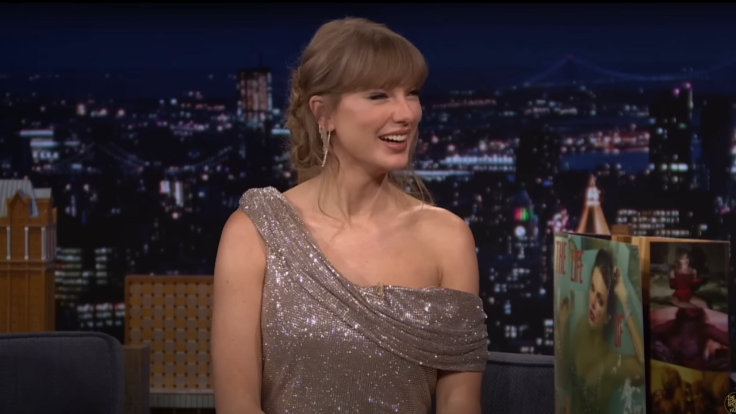Taylor Swift Shatters Adele's Record — But Furious Fans Say It's 'Not a Fair Fight'
Billboard and Luminate confirm a new equivalent-units record for Swift

Taylor Swift's 12th studio album, The Life of a Showgirl, moved an extraordinary 3.5 million equivalent album units in its opening week, according to initial reports to industry tracker Luminate relayed by Billboard, a figure that eclipses the 3.482 million units logged by Adele's 25 in December 2015.
The numbers are being hailed as a commercial milestone for the streaming era, but they have also reignited an old industry argument: do modern sales tallies, which fold streaming, track sales, and dozens of physical variants into a single 'equivalent unit' metric, reward catalogue-style marketing as much as musical demand? Critics and a vocal minority of fans say Swift's multi-variant release strategy and retail exclusives skew the contest.
Luminate and Billboard Confirm a New Benchmark
Initial industry tallies show The Life of a Showgirl reached roughly 3.5 million album-equivalent units within its first five days after release on 3 October 2025, with roughly 3.2 million of those coming from traditional album purchases (physical and digital) and the remainder credited to streaming-equivalent activity.
Billboard reports the figures as coming from Luminate, the sector's principal point-of-sale data service.
By contrast, Adele's 25 recorded 3.48 million album-equivalent units in the US in the week ending 26 November 2015, including approximately 3.38 million traditional sales, numbers that stood as the modern benchmark for nearly a decade. Billboard's archive on Adele's debut remains the authoritative record for those figures.

Industry analysts emphasise that the new mark is for 'equivalent album units', a composite measure introduced in the mid-2010s that converts streams and single-track sales into full-album equivalents. That change was intended to reflect contemporary listening behaviour, but it also means that the headline number combines distinct types of consumption.
How Merchandise, Variants and Vinyl Frenzy Moved the Needle
The mechanics behind Swift's week were not accidental. Her release was supported by dozens of collectible CD and vinyl variants, retailer exclusives, and a theatrical tie-in, all of which encouraged multiple purchases from collectors. Retail partners published dedicated release pages and purchase limits in the run-up to the launch.
Luminate and Billboard's aggregation counts each physical sale as a traditional album sale; streaming is converted under standard SEA/TEA formulas. Because Swift's campaign featured limited-run vinyl pressings and timed digital-download exclusives (including 24-hour bonus-track variants sold through the artist's webstore), fans and collectors were able, and in some cases encouraged, to buy several distinct versions of the same album. That strategy inflates pure-sales tallies relative to a single-format release.
The vinyl market in particular experienced a surge: Luminate data cited by multiple outlets shows that Showgirl set a new single-week vinyl sales mark, selling in excess of one million vinyl copies in its opening days, a phenomenon labels say reflects both fandom and the lingering status value of physical collectibles.

Fans, Critics and The 'Not a Fair Fight' Argument
Across social platforms, there has been a split reaction: celebration from many supporters of Swift's achievement, and frustration from observers who argue the scale of the campaign converts collectors' devotion into chart optics rather than purely reflecting 'who bought the music'.
Threads on X (formerly Twitter) and fan forums have framed the moment as 'not a fair fight', citing the rapid release of new variants and retailer exclusives during the sales week.
Swift herself addressed the wider conversation in a long-form interview with Apple Music's Zane Lowe on 7 October 2025, where she said: 'I'm not the art police. Everybody is allowed to feel exactly how they want', adding that she 'welcomes the chaos' of public debate around her work. The remark underlines an artist's common position: commercial strategies and creative output coexist uneasily in the modern music business.
For labels and artists, the lesson is twofold: first, album performance can still be dramatically amplified by imaginative retail strategies and cross-platform events; second, public perception of what a sales record 'means' is fracturing as metrics evolve. Analysts warn that unless chart methodology or certification rules adjust, the social argument over 'fairness' will persist alongside the commercial facts.
Whatever the technicalities, the raw scale of Swift's debut, and the cultural conversation it has provoked, underlines that album launches remain high-stakes media events, as much a measure of fandom and marketing as of critical approbation.
Taylor Swift's victory is now official in equivalent-units terms; the debate over whether the race was a level one continues.
© Copyright IBTimes 2025. All rights reserved.





















